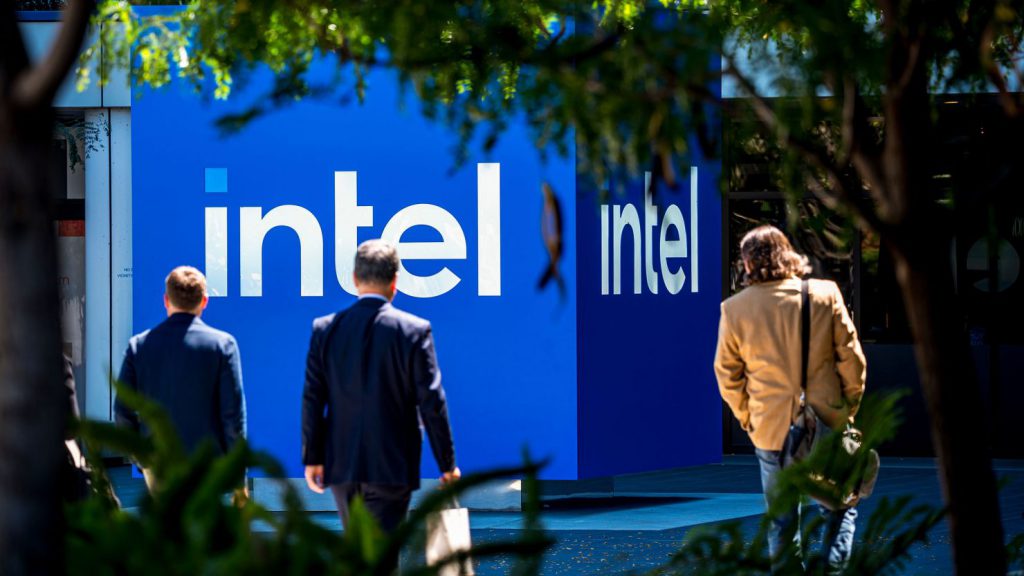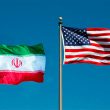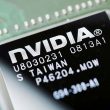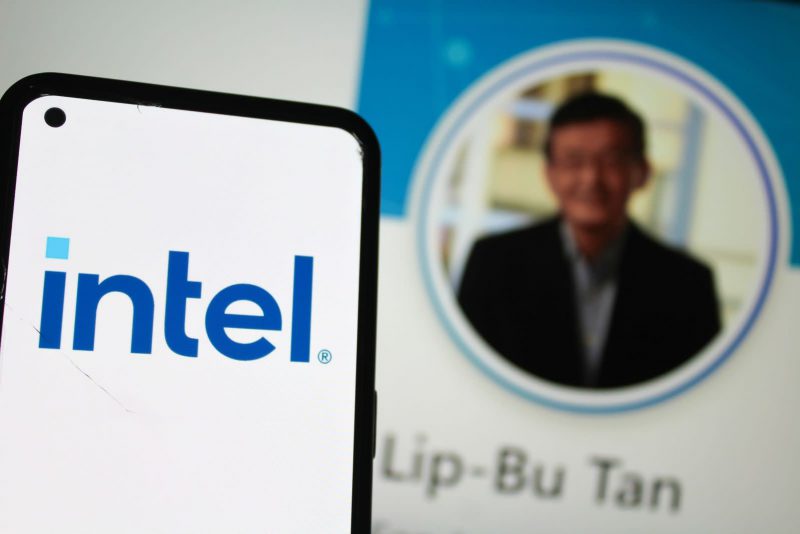Intel stock dropped more than 3% on Thursday after President Donald Trump called for the immediate resignation of CEO Lip-Bu Tan. Trump’s Truth Social post triggered the Intel stock decline by targeting Intel’s CEO over alleged conflicts of interest with Chinese companies. This unprecedented political intervention in Trump Intel leadership has actually sent shockwaves through the semiconductor industry, particularly as Intel competes with NVIDIA for AI chip dominance, and the Intel stock price continues facing pressure right now.
Also Read: Moon Landing Hype Sends Firefly Stock Soaring 34% on Debut
Intel CEO Lip-Bu Tan Under Fire as Stock Price Plunges


The controversy surrounding Lip-Bu Tan erupted after Senator Tom Cotton raised concerns about the Intel CEO’s Chinese investments through his venture capital firm. Cotton’s letter to Intel’s board questioned whether Lip-Bu Tan had divested from semiconductor firms that link to the Chinese Communist Party. The senator’s scrutiny of Trump Intel leadership comes at a critical time as the company received nearly $8 billion under the CHIPS Act to compete with rivals like NVIDIA in the AI chip market.
Trump posted on Truth Social:
“The CEO of INTEL is highly CONFLICTED and must resign, immediately. There is no other solution to this problem.”
Cotton stated in his letter:
“Intel is required to be a responsible steward of American taxpayer dollars and to comply with applicable security regulations. Mr. Tan’s associations raise questions about Intel’s ability to fulfill these obligations.”
Intel Stock Faces AI Competition Pressure
The Intel stock immediately reacted to Trump’s demands, and it fell sharply as markets opened Thursday. Intel has been working to expand its AI capabilities through its IDM 2.0 strategy, investing heavily in manufacturing capacity to compete with NVIDIA’s GPU dominance. The Intel stock price volatility actually reflects broader concerns about political interference undermining the company’s AI ambitions, particularly for companies that are receiving government funding through Trump Intel policies.
Intel issued this statement:
“Intel, the Board of Directors, and Lip-Bu Tan are deeply committed to advancing U.S. national and economic security interests and are making significant investments aligned with the President’s America First agenda.”
AI Market Challenges Beyond Political Turmoil
While Intel advances its Xeon 6 processors with Performance-cores for AI workloads, the company faces intense competition from NVIDIA’s GPU platforms that are essential for running deep learning algorithms. Lip-Bu Tan‘s venture capital background, which includes investments in hundreds of Chinese tech firms since the 1980s, was once viewed as an asset for Intel’s CEO in navigating global supply chains. However, at the time of writing, these relationships are creating significant political liabilities in the current Trump Intel administration.
Leading technology companies are reportedly accumulating NVIDIA’s GPUs to build AI computing clusters, which has led to exponential revenue growth for Intel’s main competitor. Intel derives a significant part of its revenues from China, and as Washington tightens restrictions on high-tech exports, Beijing has intensified its push for semiconductor self-sufficiency.
Market Impact on AI Chip Sector
The Intel stock decline highlights how political pressure can immediately impact market valuations right now, particularly in the competitive AI chip sector. The Intel stock price reaction demonstrates investors’ sensitivity to geopolitical risks affecting companies that are dependent on government contracts along with international partnerships like those affected by Trump Intel policies.
A White House official stated:
“This includes ensuring that iconic American companies in cutting-edge sectors are led by men and women who Americans can trust.”
Also Read: Samsung (SMSN) to Make iPhone Chips in Texas, Stock Could Hit $1,600
The Intel stock situation actually highlights broader tensions between national security concerns and also global business realities in the AI chip market. Whether Lip-Bu Tan can survive this political storm or Trump will force him to resign remains uncertain right now, but the controversy has already hurt the Intel CEO’s position and raised questions about how Intel can compete effectively with NVIDIA and other rivals in the critical AI semiconductor space under Trump’s Intel scrutiny.





